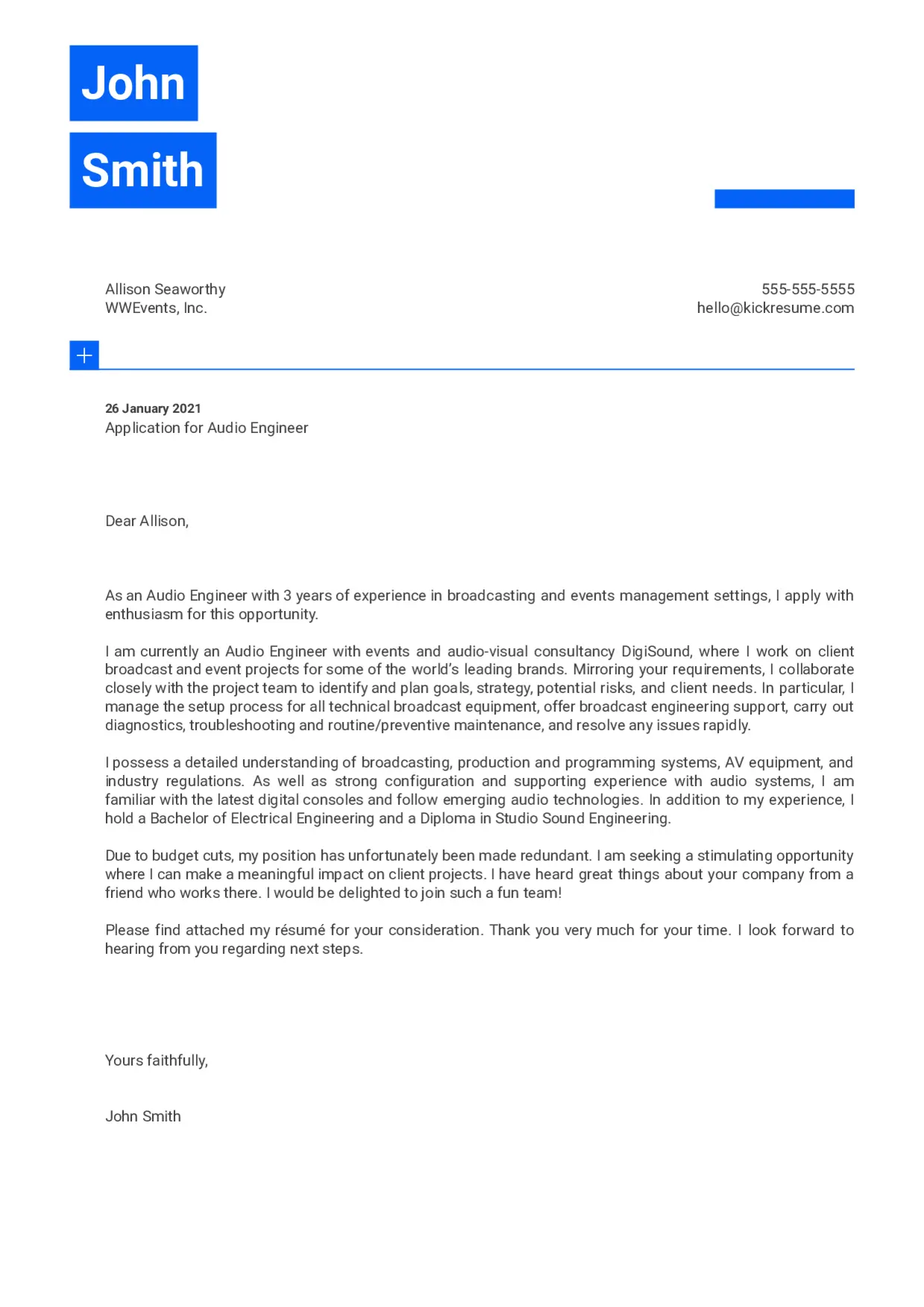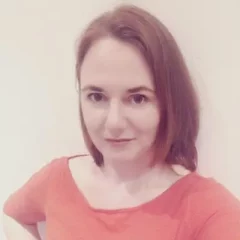Imagine you could get solid job search advice directly from someone with experience in recruiting and HR. Wouldn't that be helpful? Now you can do just that thanks to our new interview series Recruiter Reveals! Every month I interview our resident HR expert Christy Morgan on various job search topics — be it resumes, cover letters, job interviews, or anything marginally career related. |
Loved by few, hated by many. Cover letters are a necessary evil in the job search, whether we like it or not.
But there’s a way to make it much easier — by doing some research and following the right cover letter outline.
We’re going to tell you what it is and go over some of the most common format and content mistakes so you can avoid them.
Oh, and to make it even easier for you, we’ve attached a great cover letter example at the end of this interview (together with a link to another 900+ cover letter examples that you can filter by profession).
In this interview, you're going to find out:
- What an ideal cover letter looks like;
- Why you should bother with writing one;
- What's the best cover letter outline;
- How long it needs to be;
- What to research before you start writing;
- What cover letter mistakes to avoid;
- What's the best way to submit it;
- Whether you can get rejected if someone else writes it for you
Let’s start with a simple question — why do employers ask for a cover letter? What do they want to find out about me as a potential candidate?
Firstly, it's a traditional courtesy to send a cover letter with a resume. Secondly, they want to find out whether you're a great fit for the role or why they should read your resume. And sometimes, they're trying to get a hint of your personality. Cultural fit is important to many companies.
In other words, employers read my cover letter first and then my resume, is that correct?
It really depends on the company and how they received the application. If it goes via their ATS system, it reads both documents at once. But still, a resume is the main document for the ATS and has a higher weighting. However, if it's going to be manually read by a recruiter, they may quickly glance at the cover letter first because it's a much shorter text. So, they do a quick check for relevant things, like “He's a software developer, ok good, let me read the resume.” But it really depends on the individual recruiter and whether they're using technology.
In one of our previous interviews, we also talked about a common job search myth — that cover letters are dead. You disagreed and said that it's still a courtesy to send one?
There may be a recruiter who's not going to read it but you don't know who is and who isn't. So, as I say, better safe than sorry. If you're applying for a job and they only allow you to upload one document, of course, only a resume is fine. But when you're emailing it, unless they’ve specifically said no cover letter, you should send one.
You may get the occasional recruiter who won't appreciate it. Or, I don't know how many, but there are also recruiters who will say “Oh, they didn’t send a cover letter, why didn’t they make the effort?” In most cases it's still considered a courtesy to send one. And if there's you and a very similar applicant, a cover letter might be a way to show a potential employer you're a better fit.
Let’s now imagine I’m a job seeker. I want to apply for a job but I have no clue how to write a cover letter. Where should I start?
First of all, focus on what type of jobs you're applying for. Pick relevant jobs for which you're qualified for and then it will be much easier for you to write a cover letter. Secondly, research the company and their tone of voice. Look at their website and you'll get the idea. Then you should adjust your cover letter's voice to it.
For instance, startups are generally personality-driven companies. They're small and they're usually run by younger people with a lot of energy who aren't so formal. If you're super serious in your cover letter, they'll be like “What the hell?”. So, in your cover letter, you should still sound professional but be more friendly and not too serious. Show a bit of your personality.
On the other hand, if the company is quite formal, keep your cover letter very polite and formal.
Ok, I've picked specific jobs, I've researched the company's tone of voice. What now?
Search for specific cover letter examples for your role online, for instance at Kickresume. Pick some examples that fit your role and use these for inspiration. Then look at the job description of the roles you’re applying for. Identify major experience and hard skill keywords, and insert them in your letter in the relevant sections. And put it in your own words. So, for instance, if you're a graphic designer and you want to write a compelling cover letter for a graphic designer, be sure to simply draw attention to your significant experiences and relevant skills.
Then you don't have to think of 100% original content. You just look at what you have experience in, what the descriptions are looking for, what does the company want, and you put it all together. From then on, your template should need minimal tweaking, and it will work both for the recruiter and ATS systems. And, of course, don't forget to tailor your cover letter for each role you're applying for.
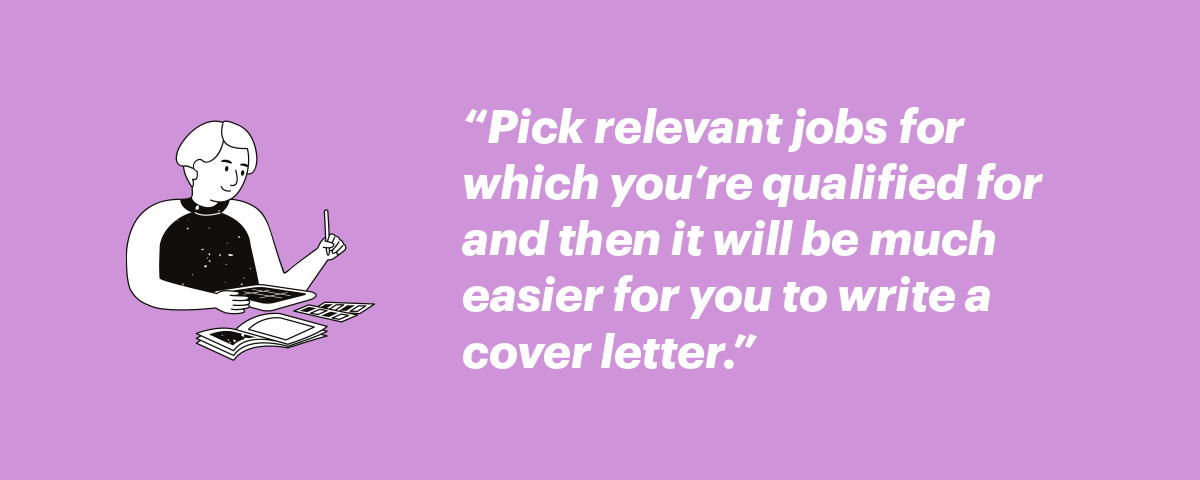
That's great advice! What people get wrong many times is they use some generic template they find via Google's image search. :D
Exactly. Don't use the first generic template you find on Google, because recruiters can tell. Get the template right first. Take a template that's specific for the types of jobs you're applying for. And then tweak it to make it your own.
What are some other common cover letter mistakes I should avoid?
Making it too general. Not telling me why you're a good fit. That's why the very first paragraph of the cover letter is so important. You should address it there. Make it specific from the very beginning.
Avoid cover letter fluff. Many people think it should have a specific length so they're trying to fill it in with fluff. Then they use cliches like “I'm detail oriented, I like working in teams,” etc. Keep such fluff to a minimum and focus on what the company is looking for.
Then the voice of the letter. Sometimes, people are too formal or too informal. As I said earlier, research the company's tone of voice and adjust your cover letter to it.
Anything else?
Pay attention to salutations. No “Hi John”, but “Dear John”. And the ending as well. It's something I see more and more that people are using “Kind regards/Best regards”. That's email language and it isn't appropriate in cover letters to people you don’t know. In general, use “Yours sincerely” (UK English) or “Yours faithfully” (US English), plus your full name.
Also avoid sounding arrogant. Some people do that. They write “I'm the best…” without evidence, and it puts recruiters off a little bit, particularly in certain English-speaking cultures such as the UK, where modesty is usually more appropriate. But if it’s true and you can prove it, objectively stating facts can definitely help sell you.
Last time, you also mentioned that a big problem with cover letters is that people repeat a lot of what they have in their resume.
Yes, that can be a problem. Of course, there can be things like your professional credentials or achievements, but it should really address what the company is asking for. But don't put irrelevant stuff from your resume, or go into a huge amount of detail at this stage.
What's the ideal formatting of a cover letter?
Cover letters should be clean and easy on the eye. It should be around three-four paragraphs long, maximum one page. No walls of text. You should use a font size between 10 and 12. And make sure no text is in icons or graphics because it's not going to be detected by the ATS.
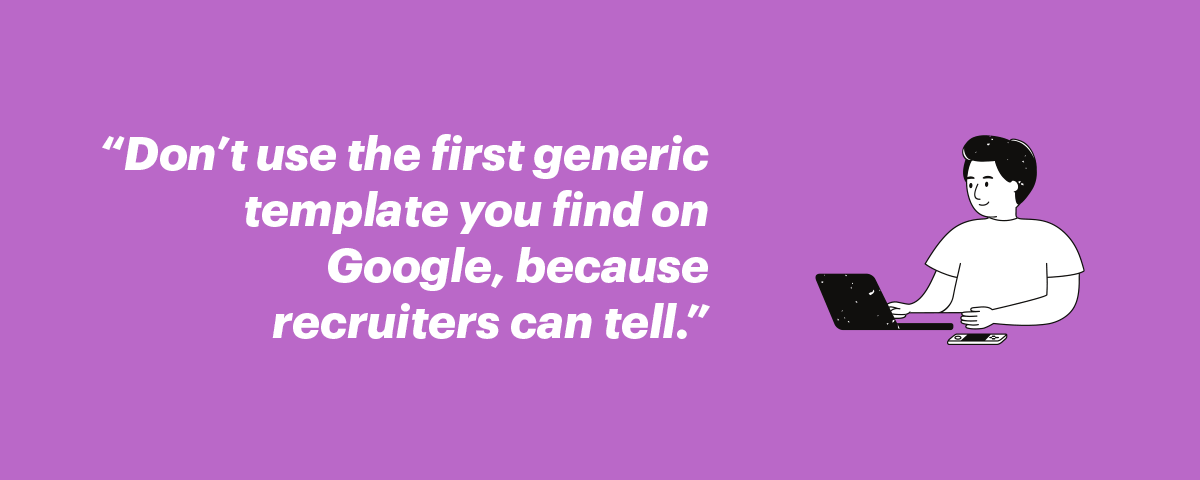
What about the content? Can you give us a good cover letter outline?
- Your contact information + company's information.
- Salutation: “Dear [first name]” (or “Dear Mrs. [last name] for formal companies).
- Intro paragraph: Introduce yourself and show you're a good fit, e.g. “As a Software Developer with 3+ years of experience in digital technologies, I apply with enthusiasm for this opportunity”. Keep it brief.
- 2nd paragraph: Give them a little bit of your background — be more specific about your relevant accomplishments and experience and match them to what they're looking for.
- 3rd paragraph: Write a little bit about any other additional relevant hard skills/knowledge areas they’re looking for, as well as any qualifications.
- 4th paragraph: Briefly, what you can bring to them and what's attractive about that company. For instance, “I've seen on your website that you heavily focus on cryptocurrency projects. As a cryptocurrency enthusiast, I would love to join your team”.
- Closing paragraph: “Please find attached my resume. Thank you very much for your time, and I look forward to hearing from you regarding next steps.”
- Signature: “Yours sincerely” (UK English) or “Yours faithfully” (US English), [your full name].
And that's it. Easy.
You may also want to pick a specific problem from the job description — what a person in this role should solve — and then use the cover letter to show how you can help them solve this particular problem.
Yes exactly. That could be the part of the second paragraph, or the fourth paragraph.
What about using bullet points or bold fonts to highlight something important? Or do you rather recommend to write it in full paragraphs?
Either format is fine. Full paragraphs are completely ok as long they're not too bulky. Usually, I do paragraphs, but sometimes I also use bullet points to highlight specific accomplishments. For instance, “In my last job, I achieved: …” and then listed achievements in bullet points. Statistics, figures and bullet points are easier on the eye in bullet point format. So, if you have specific things that you can point out, bullet points are good. Bold font to highlight important information is ok too, but don't overdo it.
Do recruiters care whether I'm using matching design templates both for the resume and cover letter?
In general, it should always look clean and not too fussy. So, I think it's a nice thing to match your resume and cover letter template and it will give recruiters a very good impression.
As you also write cover letters for your clients, do you have any special tips on how to stand out?
Make sure you’re a good fit to begin with. Lots of people apply for jobs they don’t meet the essential requirements for, so recruiters will positively notice good fits. Of course, follow the instructions that we've mentioned before. And if it's a regular company not personality-driven, you can stand out by actually giving them what they're looking for — without fluff and boring them into tears. As for the personality-driven companies, you'll stand out by putting some character into it — so they see that you’re fun, enthusiastic, or whatever they're looking for.
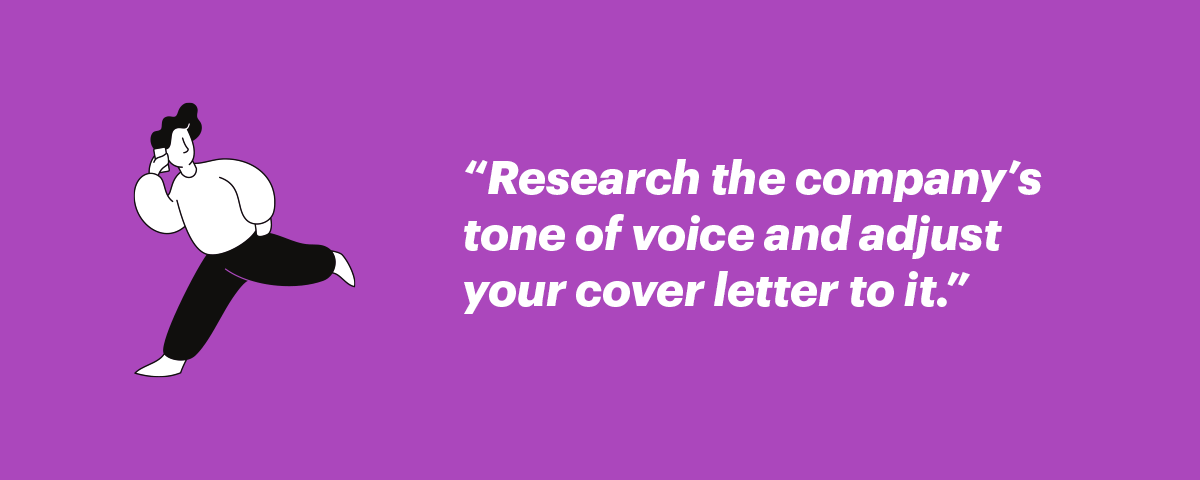
Alright, so I wrote my cover letter and I'm going to send it via email. Many resources recommend copypasting the cover letter into the body of the email. What's your take on this?
That's actually a good question. You can do it two ways. You can attach a cover letter as a document and add a short text in the email like “Please find attached my cover letter and resume for X position” — that's the easiest and safest way to do it. Or you can paste it in the body of the email.
However, if the company uses an ATS system, it might be tricky. ATS systems give the highest weighting to a resume, then to a cover letter, and then possibly consider other texts such as an email. But it also depends on how each company uses it. If you don't send a cover letter as a document, it may still consider the email text, but it will likely have a lower weighting. So, I'd recommend attaching it.
What about combining the two? You could include the cover letter in the attachment AND give a sneak peek in the body of the email. Could this help grab the recruiter's attention?
Yes, that would be great, you can do the little introductory thing like “As a software engineer with 4 years of experience working with digital technology platforms, please find attached my cover letter and resume for your consideration.” You can even copy the entire first paragraph from your cover letter. That might be the best way to go. But no more than that if you’re attaching a cover letter.
If I'm submitting my cover letter via an online form, will it be read by a recruiter or just by the ATS?
If it's submitted online, these days it's almost always going to the ATS first. It may possibly get read by a human eventually, but the ATS does the initial screening and weighting.
Ok, let's say they have received my documents, I'm a good fit for the job, I have a well-written resume but my cover letter is really bad. Will it hurt my chances of getting a job?
In general no because if you can do the job, you can do the job. But of course, if you're in a role where written communication is important, then probably yes. In the cover letter you have to express yourself. That's where employers get insight into your language and writing skills. If they're poor and these skills are required for a role, it might disqualify you.
And what if the opposite happens ? My cover letter is great but my resume isn't?
There would be a question mark — Why is there such a big difference between the two? Did somebody write their cover letter? In the end, we're hiring you mainly because of your resume and work experience. So, you may have the best cover letter in the world, but still your resume is more important.
Did you ever read a cover letter that you knew wasn't written by the person that sent it?
Oh you get that plenty of times. I write cover letters for my clients too, so I'm already super sensitive to it. But I've never myself seen a massive difference between how someone’s resume and cover letter were written.
Do people get rejected because of that?
No, I've never heard of that happening. Unless it was such a huge difference between the resume and cover letter, it's not generally such a big deal. It’s the resume content that counts.
Key takeaways: How to write a cover letter
Writing a cover letter doesn't have to be painful if you do your research and know how to write it. Put a little bit of work in it and it will be much easier for you. Here are key things to follow:
- Do your research first: Pick relevant job positions and research the company's tone of voice. Then search for cover letter examples for your specific role. Take it, modify it and make sure that the main keywords from the job description are in your template.
- Cover letter format: Keep it three-four paragraphs long, maximum one page. Use a font size between 10 and 12. Keep it clean and attractive. Ideally, have a matching template for your resume. Make sure paragraphs are not too bulky and write important data, statistics, or achievements in bullet points.
- Cover letter outline: Start with the intro paragraph where you introduce yourself. In the second paragraph, tell a little bit more about you and the company's pain points or needs and the experience you have that can help them. Then in the third paragraph, write a little bit about any other additional hard skills/knowledge areas they’re looking for, as well as your qualifications. In the fourth paragraph, tell them why you'd like to work there. Finish by thanking them and a call to action. Add a salutation and your name.
- Don't make these mistakes: Don't feel like you need to fill the whole page, stick to the main points, don't pad it with fluff. Make sure you tweak the template according to the job description and what the company is looking for. Adjust your tone of voice.
- Sending a cover letter: If they're asking only for one document, send only a resume. But whenever possible, send a cover letter too. Add it as an attachment and provide a sneak peek in the body of the email (you can even use the first paragraph from the letter).
Or browse another 900+ cover letter examples by your profession.
Why do we like this example?
- It's personal: Writer uses the recruiter’s first name which is ok if you're applying for a job in a company with non-formal culture.
- A strong opening: The intro paragraph mirrors the job title and required length of experience. It immediately shows the recruiter he's a potential fit.
- Tailored to the company's needs: Second paragraph goes into more detail about the specific experience/hard skills that candidate possesses which match what they’re looking for. Then in the next paragraph, it expands upon it with other important hard skill/knowledge keywords.
- Explains the why and the what: In the 2nd last paragraph, he explains why he's looking for a new role and what attracts him to this particular company. Even though he was made redundant in his previous job, he keeps it on a positive note.
- Polite ending and a call to action: In the concluding paragraph, he politely thanks the reader for their time and confidently anticipates that they’ll get in touch (without sounding arrogant).
Armed with the recruiter's tips for a stellar cover letter? Great job! Why not fuel that fire by browsing our curated collection of professional cover letter samples? They'll inspire you to craft a letter that hits the mark and lands you that dream job.


